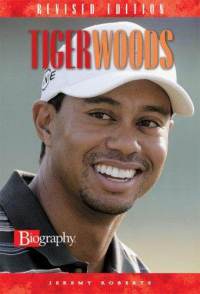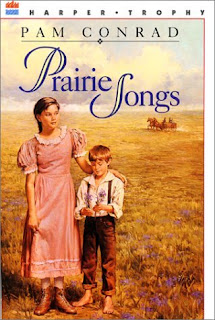The One and Only Ivan is a great read aloud. Thousands of children and teachers are enjoying reading it this month in the Global Read Aloud.
Here is a trivia quiz on the western gorilla. Seventh graders wrote the questions from this source at the San Diego Zoo site.
Go here to get answers to the Gorilla quiz.
Children's Literature
Children's literature is central to children's literacy. This blog is a place for educators, librarians, writers, students, and parents to speak to the wonder of children's literature.
Monday, October 22, 2012
The One and Only Ivan
Labels:
global read aloud,
glread12,
gorilla,
The One and Only Ivan,
trivia quiz
Sunday, August 19, 2012
Biography Subjects for Children
How should authors choose subjects for biographies for children? Children can find biographies about people such as Adolf Hitler, Benedict Arnold, Fidel Castro, Ho Chi Minh, and Lenin.
What are the limitations of books about figures such as these that are written for children?
Do the limitations of vocabulary and page length found in juvenile literature allow adequate treatment of controversial subjects?
In addition, picture book biographies always deal with figures that are less than perfect and humanly flawed.
What information do authors owe their child audiences?
How would you go about choosing a biographical subject if you were to plan a book for children?
Sunday, August 12, 2012
How Much Nonfiction? And How Accurate Should It Be?
When I was a Title I teacher ten years ago, I worked to get many new nonfiction titles into our Title I library. I believe the research then recommended a classroom library should be at least 40% nonfiction. Back then, I thought it was a big deal, and most of what I purchased was nonfiction to try to get up our nonfiction percentage.
Today that number has gone up.
The Common Core State Standards (and Iowa Core) have been aligned with the National Assessment Governing Board Reading Framework for the 2009 NAEP, so here are the percentages that our students should be reading at these grade levels.
That's more than half of what my 8th graders read should to be Informational. Informational text includes both literary nonfiction and informational text in social studies, science and technical subjects. Students need to be reading some of this in content areas too, but they better be reading literary nonfiction and learning how to read informational text in my English course too in order to reach that high percentage.
In considering the fiction and nonfiction our children read, do students need to be able to know which kind they are reading?
1. How far-out should nonfiction go?
2. How far should authors of nonfiction go in entertaining children as they seek to inform them? Located on nonfiction lists you can find:
4. Are authors and publishers obligated to help children become critical readers or to produce best selling books?
Today that number has gone up.
The Common Core State Standards (and Iowa Core) have been aligned with the National Assessment Governing Board Reading Framework for the 2009 NAEP, so here are the percentages that our students should be reading at these grade levels.
That's more than half of what my 8th graders read should to be Informational. Informational text includes both literary nonfiction and informational text in social studies, science and technical subjects. Students need to be reading some of this in content areas too, but they better be reading literary nonfiction and learning how to read informational text in my English course too in order to reach that high percentage.
In considering the fiction and nonfiction our children read, do students need to be able to know which kind they are reading?
1. How far-out should nonfiction go?
2. How far should authors of nonfiction go in entertaining children as they seek to inform them? Located on nonfiction lists you can find:
- A book about a meteor told in the first person by the rock. (Call Me Ahnighito by Pam Conrad)
- A book based on the words of an advertising writer that purports to be a speech by a famous Native American. (Brother Eagle Sister Sky by Susan Jeffers)
- A book about penguins in Antarctica that describes them as having friends and panicking at the approach of helicopters. (Helen Coucher's Antarctica)
- A book about architecture that tells children they can talk to buildings. (Forest Wilson's What it Feels Like to Be a Building.)
4. Are authors and publishers obligated to help children become critical readers or to produce best selling books?
What do you have to say about these ideas? How much nonfiction do you read? Your students?
| Image by mrsdkrebs |
Tuesday, August 7, 2012
The Mighty Miss Malone
The Mighty Miss Malone
written by Christopher Paul Curtis
Book Review by Julie Swenson
The Mighty Miss Malone comes from a family that is on a
journey. The journey is to a place
called Wonderful. During the Great
Depression, times are hard for everyone.
Jobs are scarce, but more so for the colored man. Miss Malone’s (her real name is Deza) family
is struggling to make ends meet.
There is little food on the table and health checkups just cannot be
afforded. Little Jimmie, Deza’s
brother, has stopped growing. Deza’s
teeth hurt real bad and are so rotten that it causes her breath to smell
something awful.
Although the family is quite poor, Miss Malone is very
rich. Miss Malone is rich with
intelligence. Deza is very smart and her teacher believes Deza’s gift of
intelligence has the capabilities of making a contribution to their race. There is a path laid for Miss Malone
and if she does not get on it, Deza’s teacher feels the country will be lost.
Sunday, August 5, 2012
Historical Details vs. Modern Beliefs in Historical Fiction for Children
Writers of historical fiction must deal with times in which modern values and understandings are absent.
How "true" to the period should historical fiction be in dealing with cultural mores and gender issues?
How faithful should an author be to the attitudes and language of the times?
Should publishers of historical fiction include a note about the author's research and a list of sources?
Books such as Christopher and James Collier's War Comes to Willie Freeman, Pam Conrad's Prairie Songs, William Armstrong's Sounder, are among those that have been the object of criticism for their use of language and portrayal of minority groups.
Do authors need to provide a balanced point-of-view when writing fiction based in historical issues and events?
What can teachers do if historical details conflict with modern beliefs?
How will (or do) you deal with these issues in your classroom?
Labels:
children's literature,
historical fiction,
Prairie Songs,
Sounder,
War Comes to Willie Freeman
Saturday, July 28, 2012
What's Your Poetry Story?
 |
| Mother Goose Reading Poetry |
What's your poetry experience? I hope you'll leave a comment answering one or more of these questions.
- How do you feel about poetry? List some of your own experiences with poetry both positive or negative.
- Do you read poetry for your own pleasure now?
- At what age should teachers encourage children to learn the formal elements and forms of poetry?
- When should children be asked to write poetry?
- What would you like to tell your former teachers about how to teach poetry?
- Compile a list of how to turn adults on to poetry.
- Extend this to your classroom. How do you think children will be turned on to poetry?
Poetry Resources - What would you add to this list? Please leave links in the comments section.
Think, Kid, Think - Ed DeCaria uses poetry to help kids embrace:Humor.Poetry Foundation's good for children poems - The Poetry Foundation is "an independent literary organization committed to a vigorous presence for poetry in our culture."
Empathy.
Logic.
Passion.
ETTC Poetry Forms - A great resource with scaffolds to write your own poems.
Giggle Poetry - Funny poems for children, edited by Bruce Lansky.
Favorite Poem Project - Learning to reading, discussing and appreciating poems. Favorite Poem Project's Lesson Plans.
Book Spine Poetry - A great poetry form to try with your students.
Mother Goose is from iClipart for schools subscription image.
 |
| Image by mrsdkrebs |
Mother Goose is from iClipart for schools subscription image.
Monday, July 23, 2012
It's Monday! I'm still reading...
 |
| Today's TeachMentorTexts "What Are You Reading?" post |
It is Monday, and I didn't finish anything last week. I've added one book to my currently-reading list from last week. Next Monday I will have finished some of these and will write about them here.
Subscribe to:
Comments (Atom)









